View all recordings of works by this composer
A la cubana, op.36 (2)A la pradera (2)
Allegro de concierto, op.46 (17)
Andalucia-Petenera (1)
Andantino espressivo (1)
Apariciones: Valses romanticos (1)
Aparicion (1)
Apparition (1)
Azulejos (1)
Barcarola (3)
Bocetos (1)
Cancion arabe (1)
Canciones amatorias (7)
Cancion morisca (1)
Cant de les estrelles (1)
Canto del pescador (1)
Capricho espanol (3)
Carezza (1)
Cartas de amor, op.44 (2)
Cuentos de las juventud, op.1 (arr. Johan Smith for guitar) (1)
Cuentos de las juventud, op.1 (6)
Danse espagnol (2)
Dante (symphonic poem) (3)
Danza caracteristica (1)
Danza de los ojos verdes (Dance of the green eyes) (2)
Danza espanola (1)
Danza gallega (1)
Danza gitana (Gypsy dance) (2)
Danza lenta (3)
Danzas caracteristica (2) (2)
Danzas espanolas (12) (96)
El Himno de los Muertos, H67 (arr. E Lopez-Chavarri) (1)
Elisenda (4)
El jardi d'Elisenda (1)
El pelele (14)
El tra la la y el punteado (1)
En la aldea, Poema (2)
Escena religiosa (1)
Escenas poeticas (Poetic Scenes) (9)
Escenas romanticas (11)
Estudios espresivos en forma de piezas faciles (2)
Fantasia-Cheherezada (1)
Goyescas (opera) (2)
Goyescas, op.11 (88)
Impromptus (2) (1)
Impromptus (3), op.39 (2)
Intermezzo from opera Goyescas (arr. JL Turina) (1)
Intermezzo from opera Goyescas (arr. for cello and guitar) (1)
Intermezzo from opera Goyescas (piano) (2)
Intermezzo from opera Goyescas (6)
In the Cuban Style (2)
Jacara (1)
La Berceuse (1)
La Maja de Goya (2)
La maja dolorosa (1)
La nit del mort (Night of the dead man) (2)
Libro de horas (5)
Liliana, lyric poem (arr. Casals) (2)
Los Soldados de Carton (1)
Madrigal for cello and piano (1)
Marcha de los vencidos (March of the Defeated) (2)
Marchas militares (2) (2)
Marchas militares (3) (1)
Maria del Carmen (2)
Mazurka alla polacca (1)
Mazurka in A minor (1)
Melodias (1)
Moresque y cancion arabe (4)
Oriental (Cancion variada, intermedio y final) (1)
Paisaje (4)
Paises sonados: Palacio encantado en el mar (1)
Parranda-Murcia (1)
Pequena romanza (version for string orchestra) (1)
Piano Concerto in C minor 'Patetico' (completed by Melani Mestre) (1)
Piano Quintet in G minor, op.49 (2)
Piano Trio, op.50 (2)
Piezas sobre cantos populares espanoles (6) (4)
Preludio in D major (1)
Rapsodia aragonesa (2)
Romanza (1)
Salve regina (1)
Sardana (2)
Scenes of Childhood: Miniatures (1)
Serenata Goyesca (Serenade in the style of Goya) (1)
Serenata (1)
Sonatas (26) ineditas para Clave (Scarlatti) (2)
Spanischer Tanz (1)
Spanish Dance (1)
Suite oriental (Suite arabe) (2)
Suite sobre cantos gallegos (Suite on Galician songs) (2)
Tonadillas (12) en estilo antiguo (28)
Tonadillas: selection (3) (1)
Torrijos (incidental music) (2)
Valse de Concert (1)
Valses poeticos (8) (arr. Y Rivoal & G Lambert) (1)
Valses poeticos (8) (arr. for 2 guitars) (1)
Valses poeticos (8) (arr. for guitar) (4)
Valses poeticos (8) (arr. for harp) (1)
Valses poeticos (8) (12)
Violin Sonata (2)
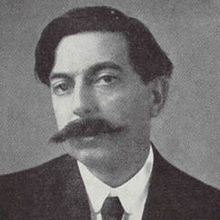
Enrique Granados Campiña (27 July 1867 – 24 March 1916) was a Spanish pianist and composer of classical music. His music is in a uniquely Spanish style and, as such, is representative of musical nationalism.
He was born in Lleida, Spain, the son of Calixto Granados, a Spanish army captain, and Enriqueta Campiña. As a young man he studied piano in Barcelona, where his teachers included Francisco Jurnet and Joan Baptista Pujol. In 1887 he went to Paris to study. He was unable to become a student at the Paris Conservatoire, but he was able to take private lessons with a conservatoire professor, Charles-Wilfrid de Bériot, whose mother, the soprano Maria Malibran, was of Spanish ancestry. Bériot insisted on extreme refinement in tone production, which strongly influenced Granados’s own teaching of pedal technique. He also fostered Granados's abilities in improvisation. Just as important were his studies with Felip Pedrell. He returned to Barcelona in 1889. His first successes were at the end of the 1890s, with the zarzuela Maria del Carmen, which attracted the attention of King Alfonso XIII.
* This text is available under the Creative Commons Attribution-ShareAlike
License
* Wikipedia® is a registered trademark of the Wikimedia Foundation, Inc., a non-profit organization.
* Original page
Recent Granados releases
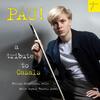
PAU: A Tribute to Casals
£12.69
(Es-Dur)

Yasmin Rowe plays JS Bach, Prokofiev, Schumann & Granados
£12.69
(Willowhayne Records)

Catalan Cello Works
£11.78
(Naxos)
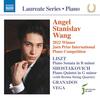
Piano Laureate Recital: Angel Stanislav Wang
£11.78
(Naxos)
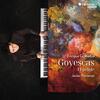
Granados - Goyescas, El pelele
£14.51
(Harmonia Mundi)
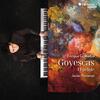
Granados - Goyescas, El pelele (Vinyl LP)
£22.61
(Harmonia Mundi)

Victoria de los Angeles: The Warner Classics Edition
£163.75
(Warner)
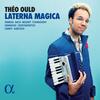
Theo Ould: Laterna Magica
£13.88
(Alpha)
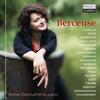
Anna Geniushene: Berceuse
£14.51
(Piano Classics)
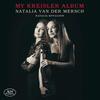
Natalia van der Mersch: My Kreisler Album
£14.51
(Ars Produktion)

Folk Flow: Works for Accordion
£14.51
(Prospero Classical)
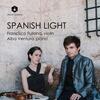
Spanish Light: Works by Turina, Sarasate, Granados and more
£12.69
(Orchid Classics)

Children’s Corner: Music for Guitar
£11.78
(Naxos)
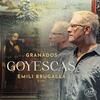
Granados - Goyescas
£14.51
(Ars Produktion)
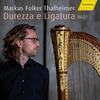
Durezze e Ligatura: Music for Harp
£12.69
(Haenssler Classic)

Passion on 10 Strings: Music for Viola & Guitar
£14.51
(TYXart)

Scandinavian Guitar Duo: All Classic
£12.69
(OUR Recordings)

Ida Presti & Alexandre Lagoya Vol.2: Solo, Duo & Chamber Recordings
£19.97
(Doremi)

From Hollywood to the World: The Rediscovered Recordings of Jose Iturbi
£118.25
(Sony)

Kalimat: Music for Harp & Cello
£12.69
(Etcetera)
 FREE UK SHIPPING OVER £30!
FREE UK SHIPPING OVER £30!